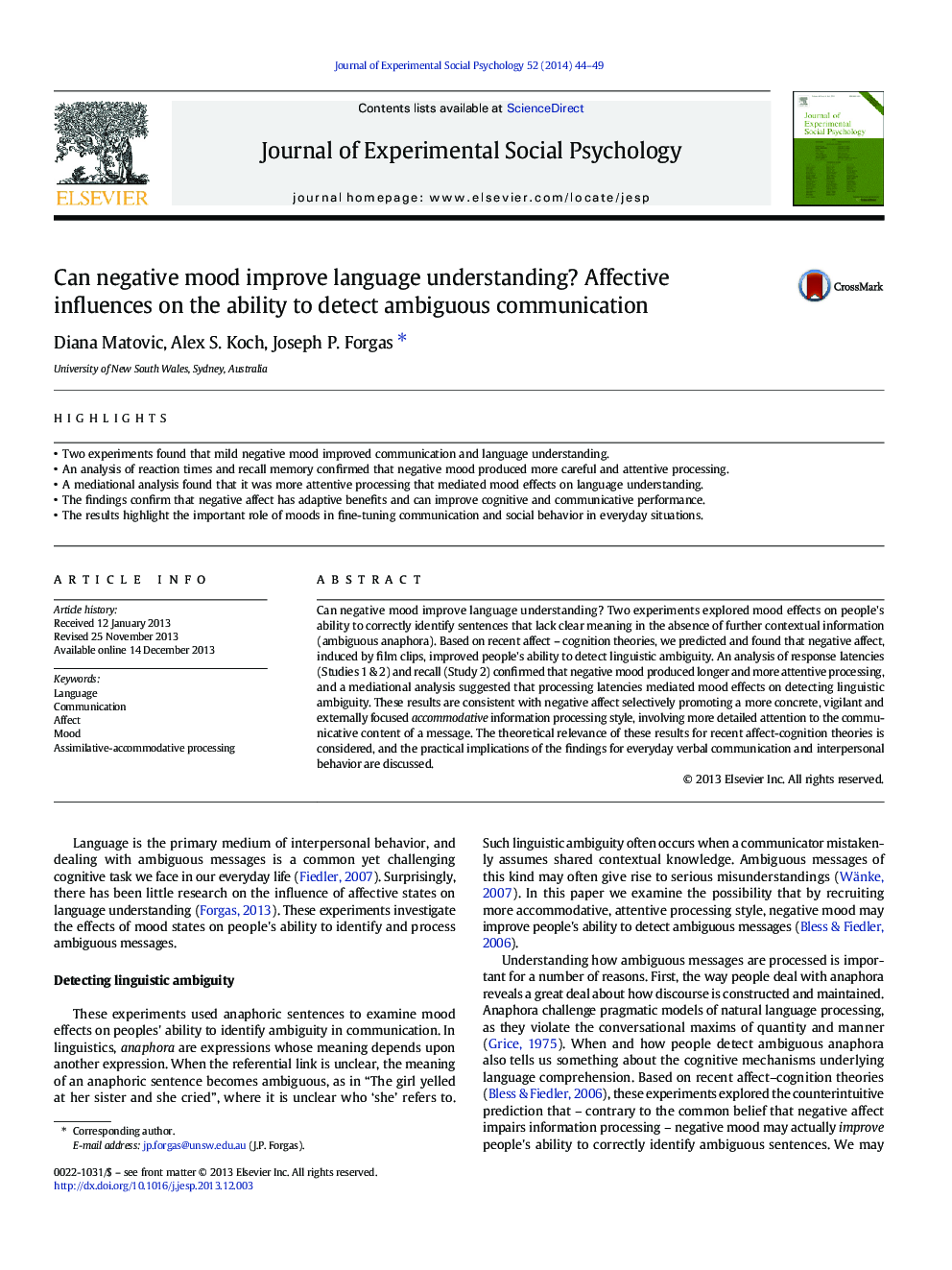| کد مقاله | کد نشریه | سال انتشار | مقاله انگلیسی | نسخه تمام متن |
|---|---|---|---|---|
| 947759 | 1475871 | 2014 | 6 صفحه PDF | دانلود رایگان |
• Two experiments found that mild negative mood improved communication and language understanding.
• An analysis of reaction times and recall memory confirmed that negative mood produced more careful and attentive processing.
• A mediational analysis found that it was more attentive processing that mediated mood effects on language understanding.
• The findings confirm that negative affect has adaptive benefits and can improve cognitive and communicative performance.
• The results highlight the important role of moods in fine-tuning communication and social behavior in everyday situations.
Can negative mood improve language understanding? Two experiments explored mood effects on people's ability to correctly identify sentences that lack clear meaning in the absence of further contextual information (ambiguous anaphora). Based on recent affect – cognition theories, we predicted and found that negative affect, induced by film clips, improved people's ability to detect linguistic ambiguity. An analysis of response latencies (Studies 1 & 2) and recall (Study 2) confirmed that negative mood produced longer and more attentive processing, and a mediational analysis suggested that processing latencies mediated mood effects on detecting linguistic ambiguity. These results are consistent with negative affect selectively promoting a more concrete, vigilant and externally focused accommodative information processing style, involving more detailed attention to the communicative content of a message. The theoretical relevance of these results for recent affect-cognition theories is considered, and the practical implications of the findings for everyday verbal communication and interpersonal behavior are discussed.
Journal: Journal of Experimental Social Psychology - Volume 52, May 2014, Pages 44–49
